Cologne-based EES, aka Eric Sell, is a superstar in Namibia. An ambassador of kwaito sound, the 38-year-old has already recorded 14 albums. Wolfgang Niedecken (71), legendary frontman of BAP, on the other hand, brought kölschrock to an international audience. Seemingly very different, during our interview at Suderman it quickly became clear how much the two artists have in common. Top of the list: their love of Cologne.
You’re both musicians based in Cologne but you’ve never actually met, have you?
EES: That’s right. And I have to admit I don’t know much about Wolfgang but I think he’s something of a legend to the people of Cologne. BAP are even famous in Namibia. Their hit Verdamp lang her is always on the playlist at the carnival events that are regularly held for the German community there.
Wolfgang Niedecken: That song and BAP itself don’t actually have anything to do with Cologne Carnival. On the contrary, people were always trying to get us to do carnival music because I sing in the local dialect but we didn’t want to. We hadn’t mapped out a career for ourselves, we were just a plain old rock band. In fact, it was just a bit of a hobby. Up until we made it big in 1981/82, I thought I’d only be doing it for perhaps another year or two. I’d actually studied painting and hadn’t planned on a career in music.
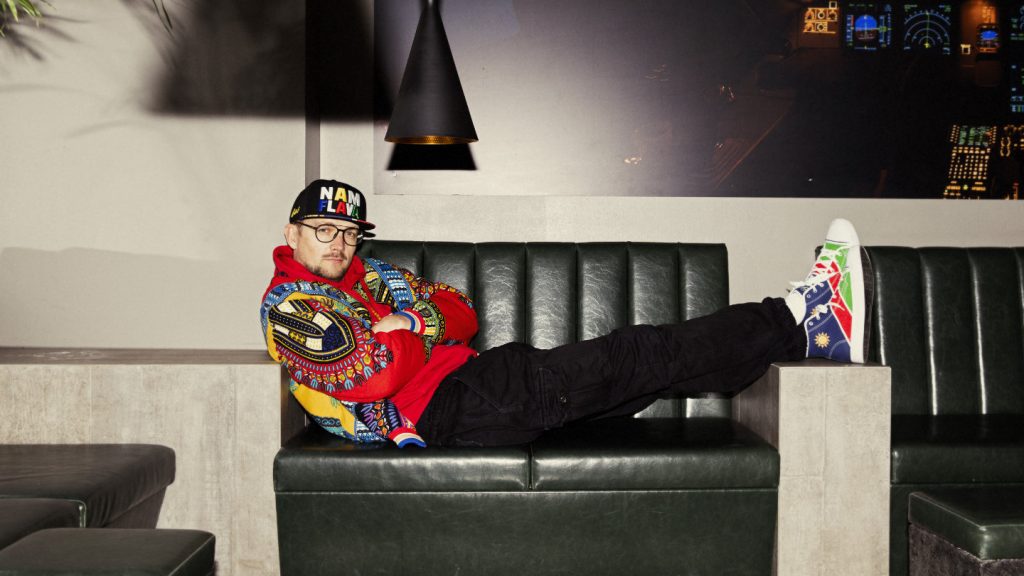
Do you still remember the first time you performed in front of an audience?
Wolfgang Niedecken: It was 1976 and one of my friends at uni, Christian Maiwurm, was organising an event to protest against the construction of a section of motorway that was planned to pass through Cologne’s Nippes neighbourhood. Christian came to our rehearsal room to try and persuade us to play at the event. We eventually agreed and once we were on stage we got the “bug”.
Some members of BAP had international aspirations and wanted to go in a different musical direction. But I felt it was more important to carry on doing “our thing”.
Wolfgang Niedecken, BAP frontman
EES: Strictly speaking, it wasn’t even a proper gig in my case. It was a school concert. They had me impersonating Michael Jackson, doing the moonwalk. Believe it or not, I couldn’t sleep, eat or even go to the toilet properly for the whole week leading up to it!
Have you ever felt you’ve had enough of being a musician?
Wolfgang Niedecken: No though there were some members of BAP who had international aspirations and wanted to go in a different musical direction. But I felt it was more important to carry on doing “our thing” and reach a level that would make us competitive beyond our local region. And I have to say the musicians in BAP today really are so good that I can count myself lucky they let me play with them! In my opinion, staying true to yourself can be pretty frustrating in the short term. You get overtaken by people who’ve adapted to the market. But in the long term, if you’ve got enough substance, you do get there eventually. Music is more of a marathon than a sprint. You just have to stick with it.
EES: I’ve had a lot more moments where I’ve had enough. There were situations where I really hated the music industry. The constant being up against brick walls because you’re passionate about what you do and people keep trying to convince you to go with the trends instead. But then the audience show you love, your album goes through the roof – and you’re free to do your own thing again.
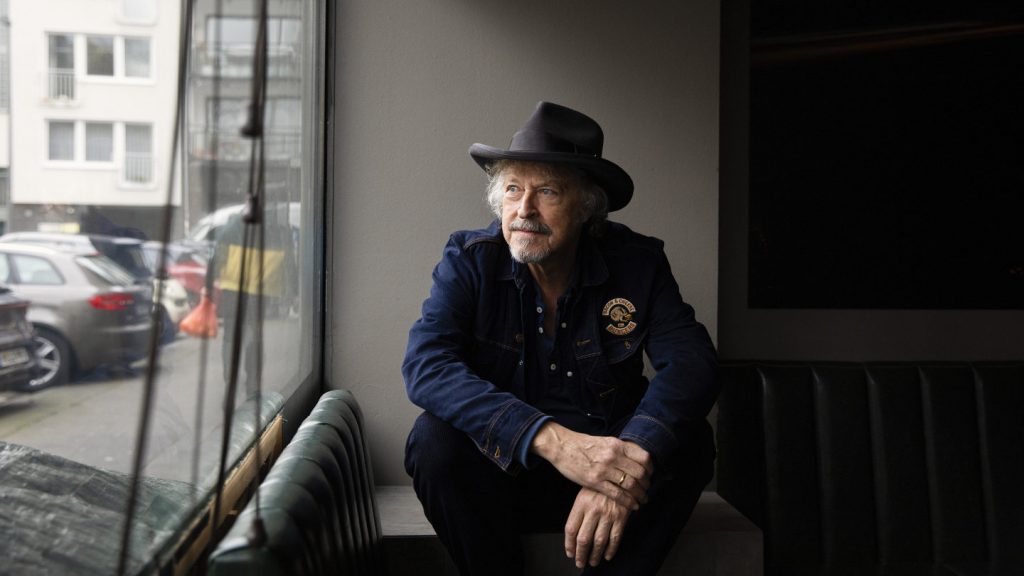
So the feedback you get from your audience is what drives your creativity?
Wolfgang Niedecken: Yes, of course. Otherwise, we wouldn’t have carried on doing BAP concerts. Audiences loved our gigs because our lyrics were in the kölsch dialect. That made us unique as a garage rock’n’roll band but there was no ulterior motive. I just sang in kölsch because I’m from Cologne. If I was a Londoner, our lyrics would have been in cockney. That’s all there was to it.
EES: I think that’s so cool. Lots of other people in the music industry are always trying to adapt to tastes. But authenticity is so incredibly important in music. If you just keep pretending, it destroys you.
I sing in kölsch because I’m from Cologne. If I was a Londoner, our lyrics would be in cockney. That’s all there is to it.
Wolfgang Niedecken, BAP frontman
Wolfgang Niedecken: You wouldn’t believe how often people tried to interfere though. Even within the band there’ve been people who wanted our lyrics to be in standard German or English. I had to resist their attempts. And thank God I did. We are actually the only rockband to sing in kölsch across the entire German-speaking region and to have been a household name there for four decades. People listen to BAP in Austria, Switzerland and the German-speaking parts of Belgium too. And our song Kristallnaach was even a top 10 hit in the Netherlands.
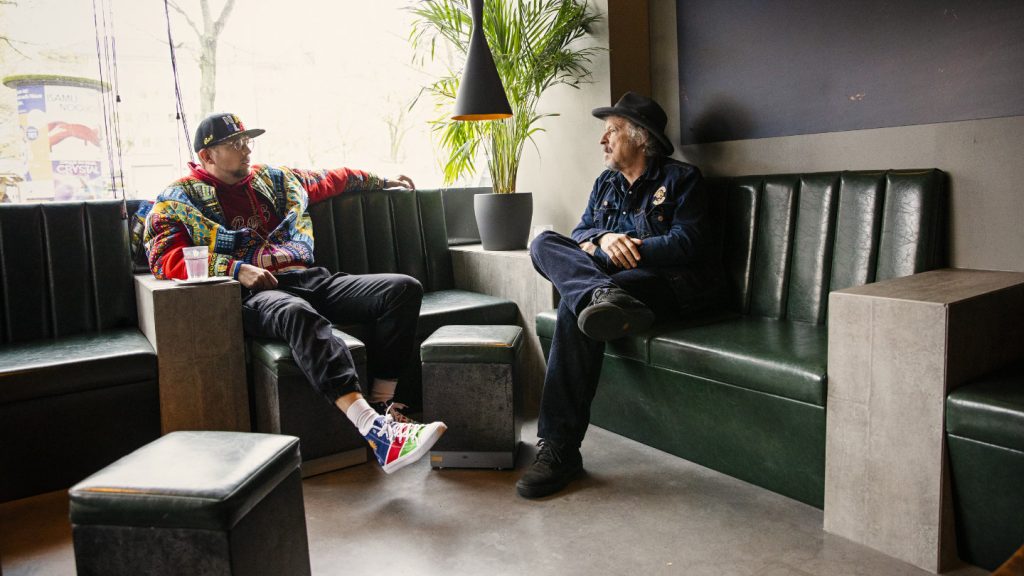
EES, when was your first contact with the kölsch dialect?
EES: It was during the carnival street parties. That was the first time I realised people here speak a kind of German I’d never come across before. We’ve got lots of different dialects in Namibia too. Imagine if you took the German language and mixed it up with other African languages over the course of a few centuries. You end up with German grammar and a basic German vocabulary but loads of anglicisms and things from everything else we speak in Namibia. I thought I spoke German but when I got here I realised my “German” had lots of words that weren’t actually German at all. But it’s something I really celebrate. This Namibian German – or “corrugated sheet German” – that we speak is something I want to cultivate. It’s only spoken by a small community but it’s great.
Wolfgang Niedecken: Wow, “corrugated sheet German”. I like that. But it’s important to point out that many dialects face extinction nowadays. We’re gradually running out of native speakers of kölsch too. Young bands that sing in kölsch today often have to look words up in “Wrede” to find out what means what.
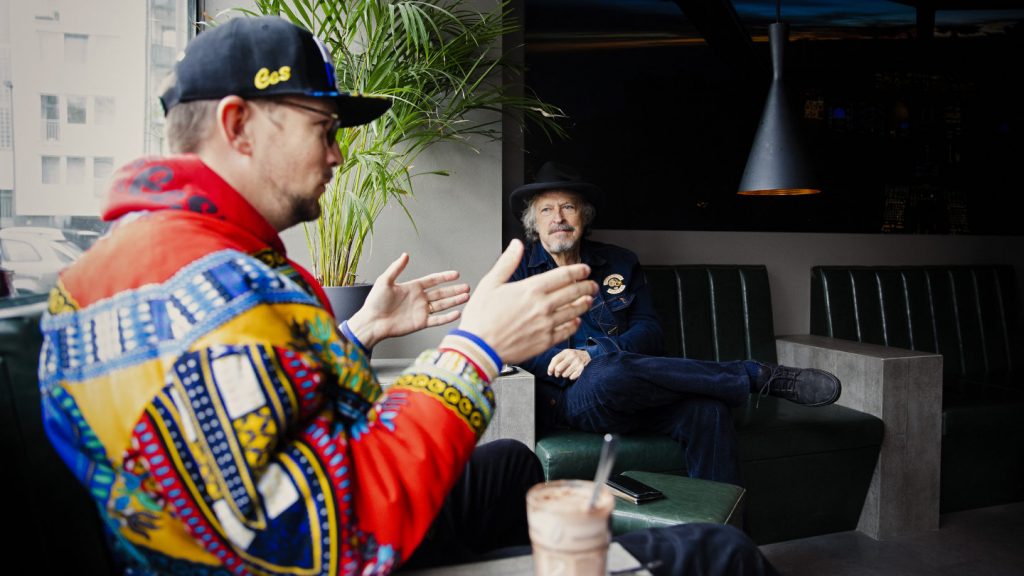
“Große Wrede” is a kölsch dictionary, right?
Wolfgang Niedecken: Yes, a beautiful, three-volume dictionary, written by linguistics professor Adam Wrede at the beginning of the 1950s. I had the honour of writing the foreword to the current edition. They’ve finally managed to turn the three volumes into one tome. But there are still some important words missing. One example is Knares – that’s when you have a stain on your clothes and you don’t know what it’s from. And then there’s Pänz. Have you ever heard that one?
EES: I’ve heard it a lot but I don’t know what it means.
I think Wolfgang can tell us.
Wolfgang Niedecken: Pänz means children. It comes from Pansen and refers to the idea that Pänz are the stomachs you have to fill if you have children.
EES: That just goes to show you how linguistically interconnected our world is. In Namibia, we also say pens for “stomach”. By the way, I’ve written a dictionary too – a dictionary of Namibian slang (Nam slang). I spent around one and a half years collecting and writing down over 650 words, their origins and their meanings. We should talk about it. Who knows, perhaps kölsch will work its way into Nam slang too.
Cologne was the first part of Germany you saw when you arrived from Namibia 16 years ago. Why were you so set on coming to Cologne?
EES: I’d met a guy from Cologne on the beach in Namibia. My girlfriend back then was from Germany too so I was planning to move there anyway. Up until that point, I’d only ever seen Cologne Cathedral on postcards. It wasn’t until I walked out of Cologne central station and found myself standing in front of the cathedral that I realised how mighty and majestic it is. It was pretty stunning.
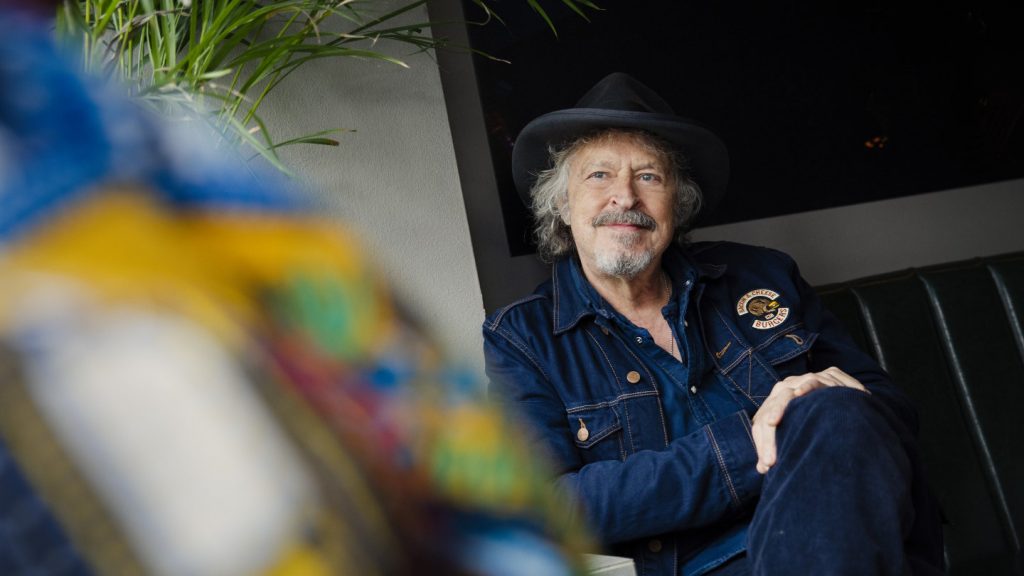
Wolfgang Niedecken: Luckily, you chose to go to the best city.
EES said somewhere that he’d had difficulty buying a ticket for the commuter train when he first got here.
EES: I was living in the Zollstock district and the company I’d found a job with was over in Mülheim. So I was on the platform at 7.30 in the morning and I’d never taken a commuter train in my life. There was a woman waiting there too so I told her my problem and she asked me whether I was kidding her. When I told her I was from Africa, she started shouting something and ran away. It’s crazy. You look like a German and speak the language without any accent so nobody believes you don’t know what to do. I ended up walking.
Wolfgang Niedecken: Oh no!
When I first came to Germany, I’d only ever seen Cologne Cathedral on postcards. It wasn’t until I walked out of the central station and found myself standing in front it that I realised how mighty and majestic it is. It was pretty stunning.
EES, South African superstar on his adopted home of Cologne
EES: Yeah, the boss wasn’t too happy about me being so late either. They gave me a company car after that. We drive on the other side of the road in Namibia so the boss told me to make sure the front right tyre scraped the kerb. But having the car just caused more problems.
What sort of problems?
EES: Well, in Namibia you just park wherever you can find a space on the footpath. So I did the same thing in Zollstock. It didn’t take long for these little notes from the council to appear on my car to tell me I couldn’t park there. I thought it was very nice of them to let me know and threw the notes away without giving it another thought. After about one and half weeks, the boss called me in to tell me he had seven letters from the council for me! Then he explained how it all works.
Wolfgang Niedecken: I hope you managed to get out of it somehow?
EES: Yep and then the boss suggested I should learn the road signs and what they mean.
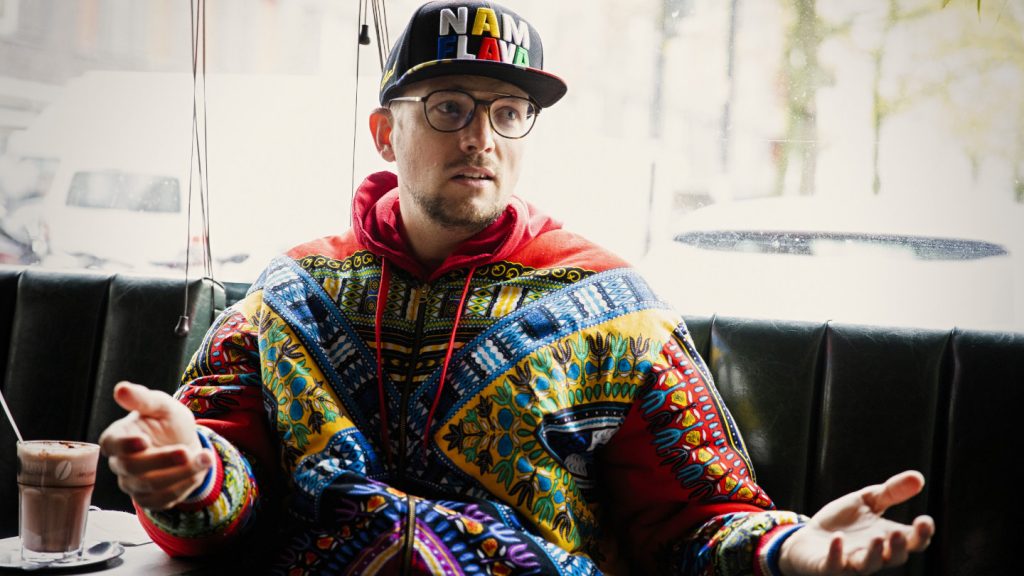
EES, have you got any major idols you’d like to share a stage with one day?
EES: Oh, if you get me started on that, the list would go on forever. For many years, it was Mandoza from South Africa. He was the one who made kwaito internationally famous. You could say he did for kwaito what BAP did for kölsch rock music. In 2011, I got to record a song with him. It was crazy. I mean you’ve got someone whose songs you’ve been listening to since you were a child and suddenly you’re in the studio with him, talking to him and telling him how to sing what. It was an honour to work with someone like that. If I want to play music with people, they have to be authentic. I’m not interested in who can fill the biggest stadiums or who has likes and followers. And, to be honest, the coolest thing for me is when you’re in a different country somewhere and you hold the mic out to the audience and they know the words to your songs.
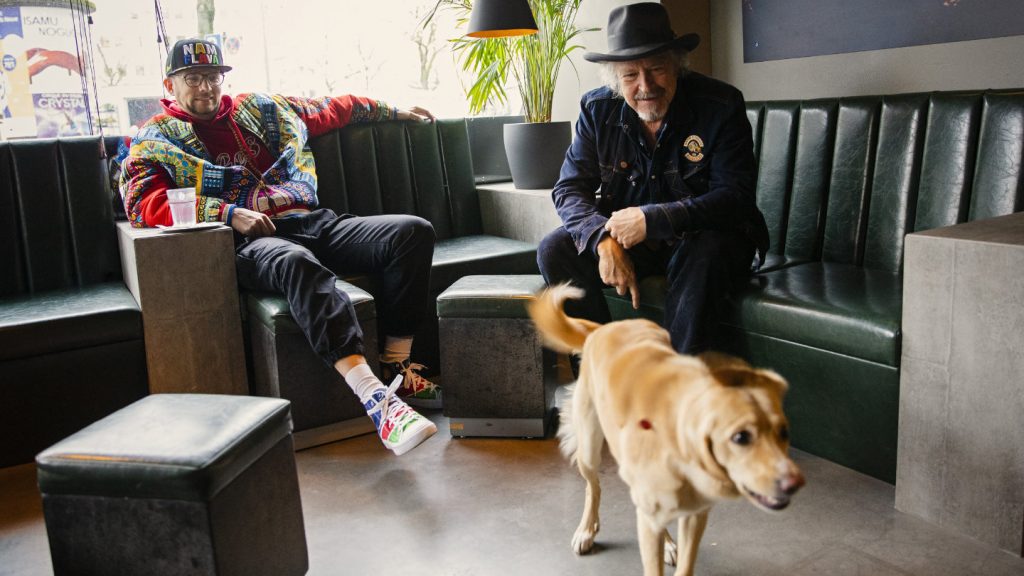
Wolfgang, what was it like when people in other countries starting singing along to BAP songs back in the day?
Wolfgang Niedecken: I can remember exactly when that happened. It was 1982. The year before, we’d released our für usszeschnigge! album, which had Verdamp lang her on it, and it was number one in Germany for months. With our 1982 album, von drinne noh drusse, we knocked ourselves off the top of the charts. Suddenly, something started happening that we as a band couldn’t really get our heads around. And then I had to go to Switzerland to do some promotion and interviews. I was flabbergasted – the journalists even knew my dog’s name and my favourite pubs in Cologne. They knew everything. And then we played our first gig in Switzerland a few weeks later. On our way to the venue in St. Gallen, we asked some passers-by the way but they didn’t understand us and we didn’t understand them. Later on, when we were on stage, 4,000 Swiss fans suddenly began singing along to our music. And all I could think was, “How did this happen?”
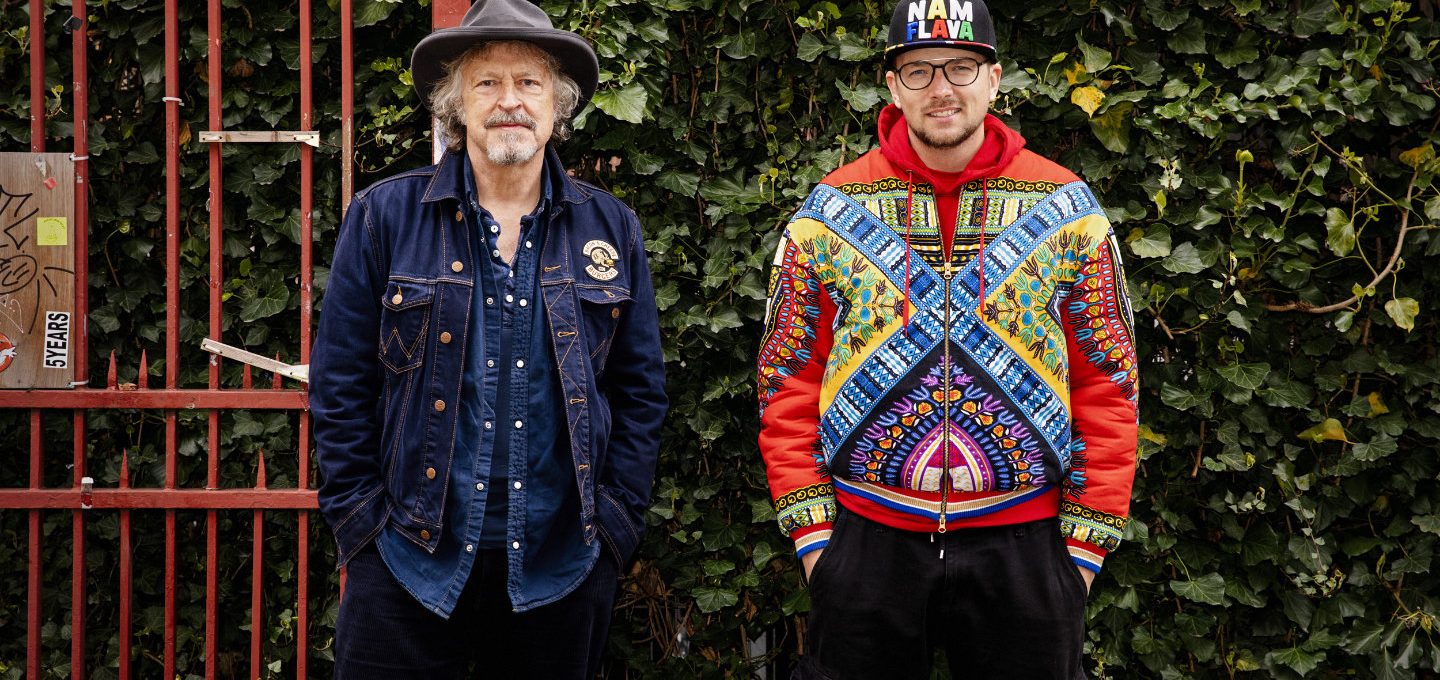

0 comments on “An interview with Cologne musicians Wolfgang Niedecken and EES”